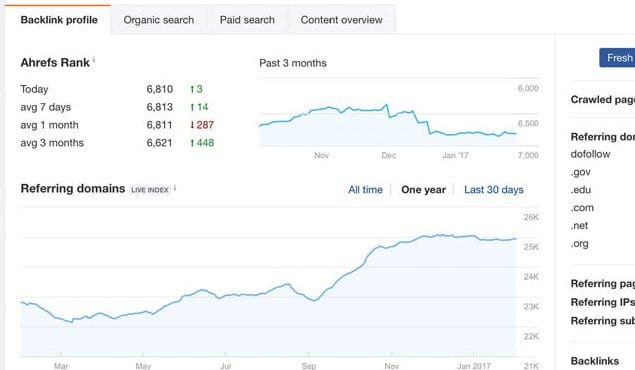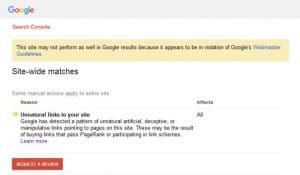There’s a fine line between being a regular guest blogger for a site and being a staff contributor. Generally, the line is paved with money. Guest contributors are rarely paid; staff writers draw a salary.
There’s another difference as well, and that’s in terms of value to your own site. If you’re a guest contributor, it’s expected that you’re going to try to promote your brand, your industry, and your social media presence. If you’re a staff writer for a site, you’re expected to have that site in mind first and foremost. That means you’re less likely to be able to plug your own site, and have less freedom in the topics you can cover.
There are definitely benefits to being a regular guest contributor, but some of them you have to think outside the box to uncover.
Three Stages of Guest Blogging
I figure that there are three types of guest blogging you can go for with a site. One is the one-off guest post. You identify a site, you talk to them and get a guest post published on their blog, and that’s it. You don’t go back, you don’t explore additional post options, nothing. You might keep up contact with the site, share their posts on social media and do the basic minimum amount of effort necessary to keep the contact alive, but that’s about it.
This level of guest blogging is used for two purposes. The first is to build connections, potential future resources with bloggers in case they explode, go viral, or go off in a direction where having a foot in the door can benefit you. The second is to build links to your site. You don’t care about repeat posts because you want a broader link portfolio, not a deeper one. The more links you have from disparate sources, the better off you’ll be.
The second type of guest posting is the infrequent contributor. This is when you contribute semi-regularly, but not on a constant basis. You might post once a month, or once every couple of months, or maybe just when the mood strikes you. I have this relationship with Entrepreneur, for an example.
This form of guest posting is best for the mid-tier and top-tier sites that are hard to get topics approved for, or that don’t often have room in their editorial calendar for guest contributions. They’re sites you want to keep writing for, because they’re valuable to you beyond just links, but you’re not at a level where you can contribute regularly.
The third type of guest posting is the regular contributor. This is when you try to get monthly or bi-monthly posts published on the site, and you form a close relationship with the editor in charge. You essentially become one of their writers, though you aren’t necessarily compensated for it. I do know that some sites have performance-based models for compensation; if you post enough and draw in enough traffic, you can earn a share of the site’s revenue. This is not the norm, though, and most of the time when you’re implementing this level of guest blogging, you’re doing it for other reasons.
So what are the good reasons to aim for the third kind of guest blogging, rather than the others?
Association with a Group of Experts
Perhaps the number one benefit you get out of a sustained, regular schedule of guest blogging for a single site is association with the other people who write for that site. This is primarily beneficial when the site is a multi-author blog, rather than a single-owner site.
For example, take Moz. Moz is a large authority site in the SEO, internet marketing, and web design niches. They have well over a dozen writers, but after you’ve spent some time following the blog, you start to recognize the common names. You might not know what each of those authors does individually, but you know that in order to post on the Moz blog, they have to be an authority in their space.
YouMoz was a little different. The Moz blog is primarily for staff members of Moz, while YouMoz was a blog platform for anyone to contribute. However, near the end of last year and the beginning of this one, they made the decision to kill off YouMoz in favor of a better guest posting process.
This is actually a great opportunity! The former YouMoz tended to garner a lot of low quality posts, and with the volume of submissions it received, it was taking a long time for good posts to filter through and reach publication. It wasn’t great for sustained guest posting because of how long it took to see returns.
At the same time, YouMoz was a segregated way of posting guest content. You didn’t get your name associated with the staff of Moz, because you were off in a different section. Now, with YouMoz closed down, guest posts will presumably be merged with the main flow of content, and will bring a closer association with Moz staff.
Of course, the primary benefit is not necessarily name recognition with the staff of Moz so much as it is being “someone who writes regularly for Moz.com.” It’s the same way you’ll get benefit from contributing to a site like Entrepreneur or Forbes; it’s the brand name rather than the people involved that gets you benefit.
That said, it’s the people that make the brand big. Moz is an authority because of the intelligent and knowledgeable people who run it. The same goes for most authority sites, particularly the ones that aren’t just news agencies.
Whether it’s branding or association with authority, you’re still schmoozing with the big names, and that will rub off on you with regular appearances.
Building a Regular Audience
When you contribute once to a site, people read your article, but how many of them actually click through to your site, read your content, and become followers of your brand? The answer is, not all that many.
When you guest post once, you’re not doing it for the traffic. When you guest post on a regular basis, you start to gather that kind of audience. People don’t just glaze over your name on a one-off post, they start to recognize your picture in association with your content. If you’re producing high quality content, they will start to recognize that you’re the one behind it on a regular basis.
The thing is, even then, people aren’t necessarily going to be clicking through and becoming part of your audience on your main site. Some will, sure, but you’re never going to merge the two audiences.
The primary benefit you get out of this is recognition of your name and profile picture. When you go on to post in other locations, people start to recognize you there. “Hey, I know this guy from his posts on Entrepreneur!” They’ll give you more benefit of the doubt, they’ll give you more attention, and they’ll be more likely to follow your calls to action.
Furthermore, as you keep expanding your area of influence, this compounds. People recognize Neil Patel because he’s all over the place. Same with Kristi Hines. They’re recognizable names and faces.
Eventually you can do things like launch a new site, launch a new product, or headline an event and pull in value from all of these various audiences you have built up over time. You get more value concentrated in one place than you would if you were just trying to draw from your one main site and a few scattered guest posts.
Deepening your Backlink Profile
The value of the backlink should not be discounted. There are three elements that go into a calculation about your backlink profile. There’s the breadth of your profile, which is how many different sites around the web are linking to you. There’s the depth of your backlink profile, which is how often various sites are linking to you. And there’s the value of your backlink profile; how high quality are the sites and the links that are pointing at you?
Guest blogging hits all three. You can get links from all over the web with guest blogging, when you use the superficial technique to get a single post or two published on a site and move on. This gets you a network of links pointing your way, with value and traffic from all over the web. These links need to be high quality, which comes down to you vetting the sites that you’re trying to post on more than anything. If you have too many links from a web of low quality sites, it looks more like you were buying links or you were using a private blog network, both of which are negative techniques. And, of course, they need to be followed.
With the regular guest posting on a few top sites, you’re getting a deeper link profile as well, in two ways. Firstly, you get the links because you’re including them in your content. Ideally, you’re not just shoehorning in a “oh and by the way come visit my site” link in your post. You’re writing good content on your site, then you’re linking to it as a reference in your guest posts. These links are more likely to be followed and they’re more likely to make it through editorial filters.
You also get more links from people who are recognizing you, recognizing your content, and linking to that content. The larger your web presence, the more it sprawls out and the more people contribute to it. It’s a kind of self-perpetuating machine.
Building Social Connections and Networking
In every aspect of marketing, there’s always going to be an element of networking. The old saying says that it’s not what you know, but rather who you know that counts. This has been true for thousands of years, as no true meritocracy has existed in all of human history. Sure, people get ahead by being skilled with their trade, but people also get ahead because someone else recommended them due to their skill.
When you guest post for a site you might make a fleeting contact with a site editor or manager, and you might have a brief email exchange with an owner, but that’s not giving you a great relationship. With regular guest posting, you start to get to know these people, and they get to know you. The tone of email conversations becomes more casual. You make jokes. You go from “To whom it may concern” to “Dear Mrs. Smith” to “Hey Jane”. Maybe you go to conventions or events and meet them, have a drink or do lunch, become friends.
When an opportunity opens up in the future that one of you finds, that would be good for the other, you can recommend it. When a friend comes and says “Hey do you know anyone with skills in X?” they can say “yes” and give them your number. This kind of networking builds over the years and might not bear fruit for a long time, but building a social web is always going to be beneficial, no matter who you are or what your industry is.
Opening Doors to Future Guest Post Opportunities
When you guest post on a site, you can often leverage that into guest posts on another site, a better site. People might not have ever heard of Guestpost.com, but they’ve heard of Entrepreneur. I can cite content I’ve written on both, and maybe the fact that I’ve written for Entrepreneur pushes them over the edge into accepting me for a guest post. Maybe I get into Moz, maybe I get on QuickSprout, maybe I write something for Hubspot. Maybe I leverage these into writing for Forbes. It all builds up on itself, layering value on top of value.
That’s the thing about guest posting; each individual post maybe isn’t all that valuable on its own, but it contributes something to the snowfall, until the avalanche happens and you realize just how much it all built up.
 ContentPowered.com
ContentPowered.com









